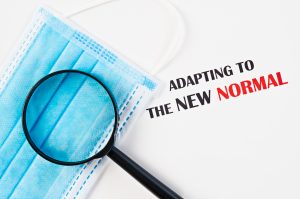Life after getting the COVID-19 vaccine
By Matt Queen Advocate Healthcare News — February 15, 2021
Continuing to follow COVID-19 safeguards is the best way to ensure more people who aren’t vaccinated yet don’t get infected, says Dr. Minhaj Husain, infectious disease expert with Aurora Health Care.
In a little more than a year, safe and effective COVID-19 vaccines have been developed, tested, approved and are going into the arms of patients and frontline caregivers nationwide.
As the rollout continues, and more and more people receive both shots needed for protection from the virus, the light at the end of the tunnel is getting brighter.
But before life returns to normal, a lot of work remains. Dr. Minhaj Husain, infectious disease expert with Aurora Health Care, answers some common questions facing those who have gotten the COVID-19 vaccine.
Are there any long-term side effects from the vaccine?
Currently, there’s no data that shows any lasting long-term effects from the COVID-19 vaccine. However, we won’t know for sure until time passes and more data about the vaccine is gathered. The immediate side effects, including pain at the injection site, fatigue, headache and muscle pain, chills and nausea, are mostly mild and go away within a few days.
I’ve already had COVID-19 and have recovered. Do I need to get the vaccine?
Yes. Due to COVID’s severe health risks and the possibility of getting infected again, you should be vaccinated regardless of whether you already had COVID-19. Right now, we don’t know how long recovered patients have natural immunity from COVID-19. However, if you were treated for COVID-19 symptoms with monoclonal antibodies or convalescent plasma, you should wait 90 days before getting a COVID-19 vaccine. Recovered patients should talk with their doctor before getting a COVID-19 vaccine.
I’ve gotten both doses of the COVID-19 vaccine. Can I still spread the virus?
It’s not clear yet whether getting a COVID-19 vaccine will prevent you from spreading the virus to unvaccinated adults and children, even if you don’t get sick yourself. It’s early in the vaccination process and we need to understand more about the protection that COVID-19 vaccines provide.
Does getting vaccinated protect me from COVID-19 variants?
From what we know so far, it appears that the immune response generated by the Pfizer and Moderna vaccines is more than likely to protect people against COVID-19 and its variants. However, it’s important to note that we are still learning more about the variants and the effectiveness of vaccines against them
Do I still need to wear a mask and socially distance?
Yes. Because we’re learning in real-time how vaccinated people may or may not still spread the virus, continuing to follow COVID-19 safeguards is the best way to ensure more people who aren’t vaccinated yet don’t get infected. That means we must stay diligent by wearing masks in public, avoiding crowds, staying six feet away from others and hand washing. Keeping up with these safety precautions is key as more people get vaccinated and will help us defeat this virus together.



